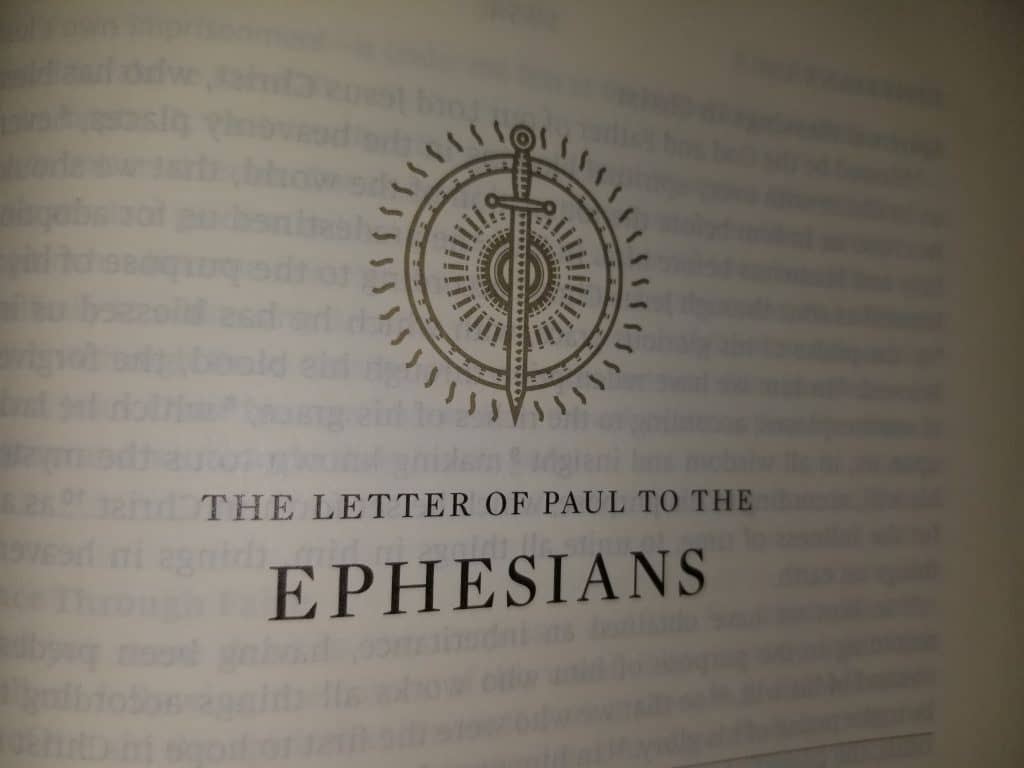⏱️ Estimated Reading Time: 5 min read
Ephesians 1:3, “Blessed be the God and Father of our Lord Jesus Christ, who has blessed us in Christ with every spiritual blessing in the heavenly places…”
I am persuaded that one of Paul’s goals in Ephesians, particularly in the first three chapters, is to stun his readers with a vision of the glory of God in Christ so great that they will be forever changed. Accordingly, Paul begins his letter with an extraordinary statement that is worthy of much contemplation.
Other than the names of God the Father and God the Son, the most important word in Ephesians 1:3 is “blessed” or “blessing.” It is used three times and translated from the Greek word “eulogy” which literally means a good word or a praise. Paul is saying, then, that God has spoken good words over his people for which he himself ought to receive praise. With this in mind, let me draw your attention to five aspects of this extraordinary statement.
Five Aspects of Paul’s Extraordinary Statement
First, notice that the blessing God bestows upon his people is a fact and not a feeling. I get this from the tense of the word “blessed.” Paul declares that God the Father has already blessed his people in Christ which means, in the words of Jesus, it is finished (John 19:30). Of course, there are past, present, and future implications of the good words he’s spoken over his people, but his blessing as already been issued and there’s nothing anyone in heaven or earth can do about it. Friends, please let this truth grip your heart—if you believe in Jesus Christ, the Father’s blessing upon your life is a done deal!
Second, notice that the blessings with which God the Father has blessed his people are spiritual blessings that emanate from the heavenly places. While the favor of God upon his people may manifest in relational, circumstantial, and material provisions, his favor is essentially spiritual. In other words, it proceeds from the Spirit of God to the people of God for the glory of God. This is, in part, why Jesus taught us to lay up treasures in heaven and not on earth (Matthew 6:19-21) and why Peter defined the blessing of God upon his people as a living hope, “an inheritance that is imperishable, undefiled, and unfading, kept in heaven for you, who by God’s power are being guarded through faith for a salvation ready to be revealed in the last time” (1 Peter 1:4-5).
Third, notice that God the Father has blessed his children with “every spiritual blessing.” Indeed, God has not withheld a single thing from his children but has poured out the fullness of his grace upon us. He has bestowed every good gift in his possession. He has held nothing back. Of course, many things have yet to be fulfilled, and therefore we have yet to experience much of what God the Father has already spoken over us. But again, for those who believe in Jesus Christ, it is finished. God has given his all to all of his children.
Fourth, notice that the fullness of the Father’s blessing is poured out upon his children in a particular way, specifically, in Christ. Even as Jesus is the radiance of the glory of God and the exact imprint of his nature, even as all things have been created and are sustained through Christ (Colossians 1:16-17; 2 Corinthians 3:18; Hebrews 1:2-3), so the good news of salvation and all it implies have been accomplished by and applied through Christ (Ephesians 2:1-10). This truth is so massively important to Paul that he uses some form of the words “in Christ” about thirty times in his brief letter to the Ephesians. Paul wants us to understand and rejoice in this fact: all of the blessings of God have been poured out upon his people by virtue of their intimate and eternal union with Jesus Christ.
Fifth, notice that the children of God are called to respond to the extraordinary blessings of their Father by blessing the one who has blessed them in Christ. This doesn’t mean that we’re called to pay God back for what he’s done for us because that would be as impossible as it is unnecessary. But it does mean that the natural and fitting response of all who have been so immensely blessed by the Father is to worship his holy name and bless him in the privacy of their hearts, in the midst of the congregation, and even in the hearing of the world. And since the Father and the Son are one (John 10:30), to praise one is to praise the other. Indeed, even as the Father has blessed us in Christ, we exalt his great name in Christ.
Conclusion
Friends, the opening line of Ephesians is simply stunning, and over the years it’s had two major effects on me. On the one hand, it has taken my breath away and left me speechless in the presence of the one who has been so gracious to his children in Christ. On the other hand, it’s left me wondering how these things can be true. I don’t know about you, but I rarely feel like I’ve been blessed by God the Father with every spiritual blessing in the heavenly places in Christ.
I think Paul anticipated this response, this lack of faith, and then spoke to it in Ephesians 1:4-14. So, as you follow this blog series, pay careful attention to what Paul says next because it’s designed to explain Ephesians 1:3 and lead us to the place where we will say from our hearts, “What else could God the Father possibly have done for his children in Christ?”
May the Lord richly bless us as we prayerfully meditate on his Word. May the Lord increase our joy in salvation so that we will gladly, regularly, and eternally, bless his holy name!




